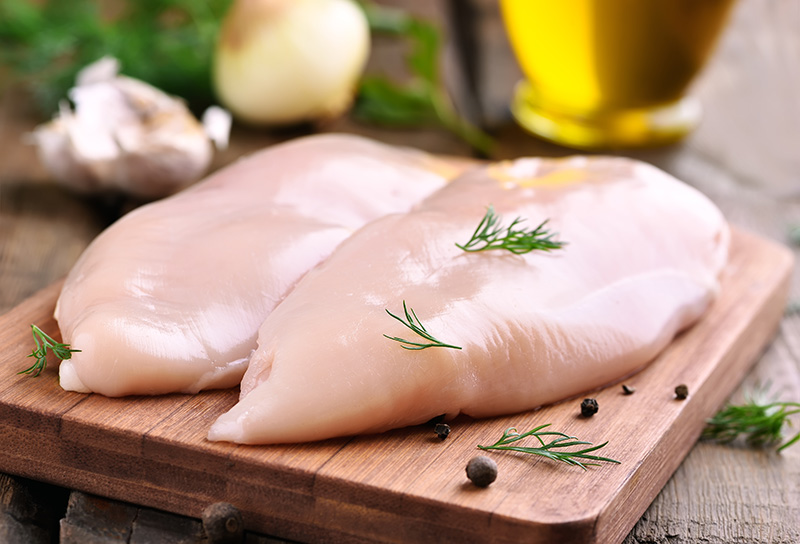It's easy to get answers about health and nutrition! Just send your question by email to [email protected] and Dr. Harlan will respond to selected questions of general interest. Answers will be posted in the Ask Dr. Gourmet newsletter (sign up now!) and archived in the Ask Dr. Gourmet section of the website.
Please note that the Ask Dr. Gourmet feature is restricted to questions regarding food and nutrition. Due to the many questions we receive, not all questions may be answered. For more specific questions about your individual health, please contact your doctor. About Timothy S. Harlan, MD, FACP, CCMS | Terms of Use | Privacy Policy
Ask Dr. Gourmet
Isn't chicken a low sodium food?
I have mitral valve stenosis and take verapamil and warfarin. I have been looking for low sodium diet books in bookshops for ages, and just by accident came across your site - it's fantastic. I can say after a week of trying your recipes I feel a lot better. I also found that the chicken breast piece I bought from the supermarket had over 500mg of sodium - what is the daily RDA for an adult female? I had thought that chicken was a healthy alternative to beef and lamb - am I wrong?
Dr. Gourmet Says....

The recommended daily allowance of sodium for adults is 2,300mg sodium per day, but we do often have our patients with issues such as your mitral valve stenosis on a low sodium diet. Most physicians recommend a 2,000 mg per day diet in such cases, but check with your doctor regarding the level he or she wants you to be at. It may be as low as 1,500 milligrams per day.
I am not sure why the chicken breast you purchased was labelled that way. A 4-ounce chicken breast has about 73 mg of sodium in it naturally. Possibly the one that you chose was pre-prepared with seasonings that contained salt. Check the ingredients section on the package to see if there is added salt.
I applaud you for reading food labels like you are. Becoming more knowledgeable of the foods that you are eating and how much sodium they contain is really smart. If the ingredients don't list salt (or another sodium, like sodium bicarbonate), then the sodium content is naturally occurring in the food.
Thanks for writing,
Timothy S. Harlan, MD, FACP, CCMS
Dr. Gourmet
